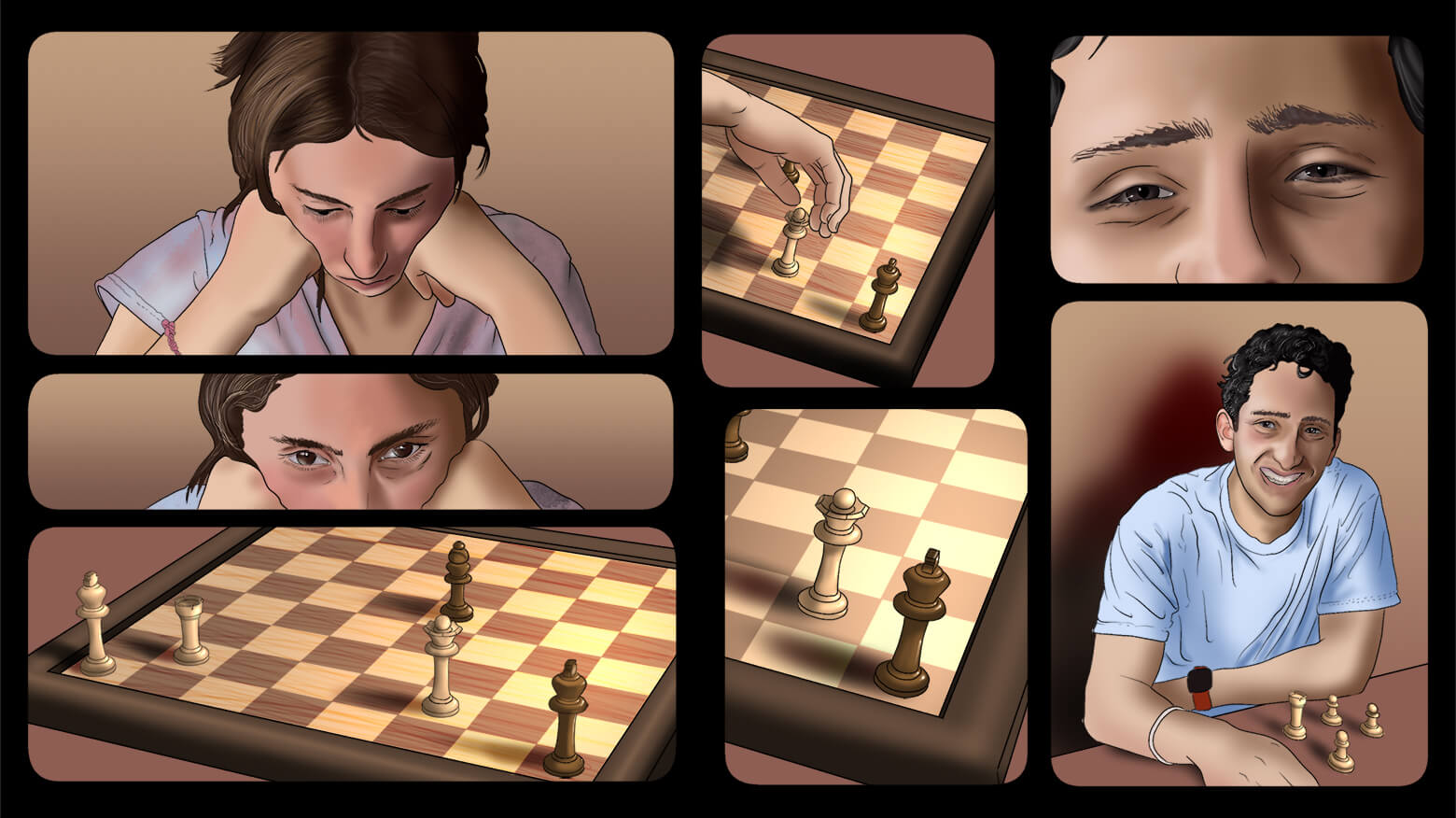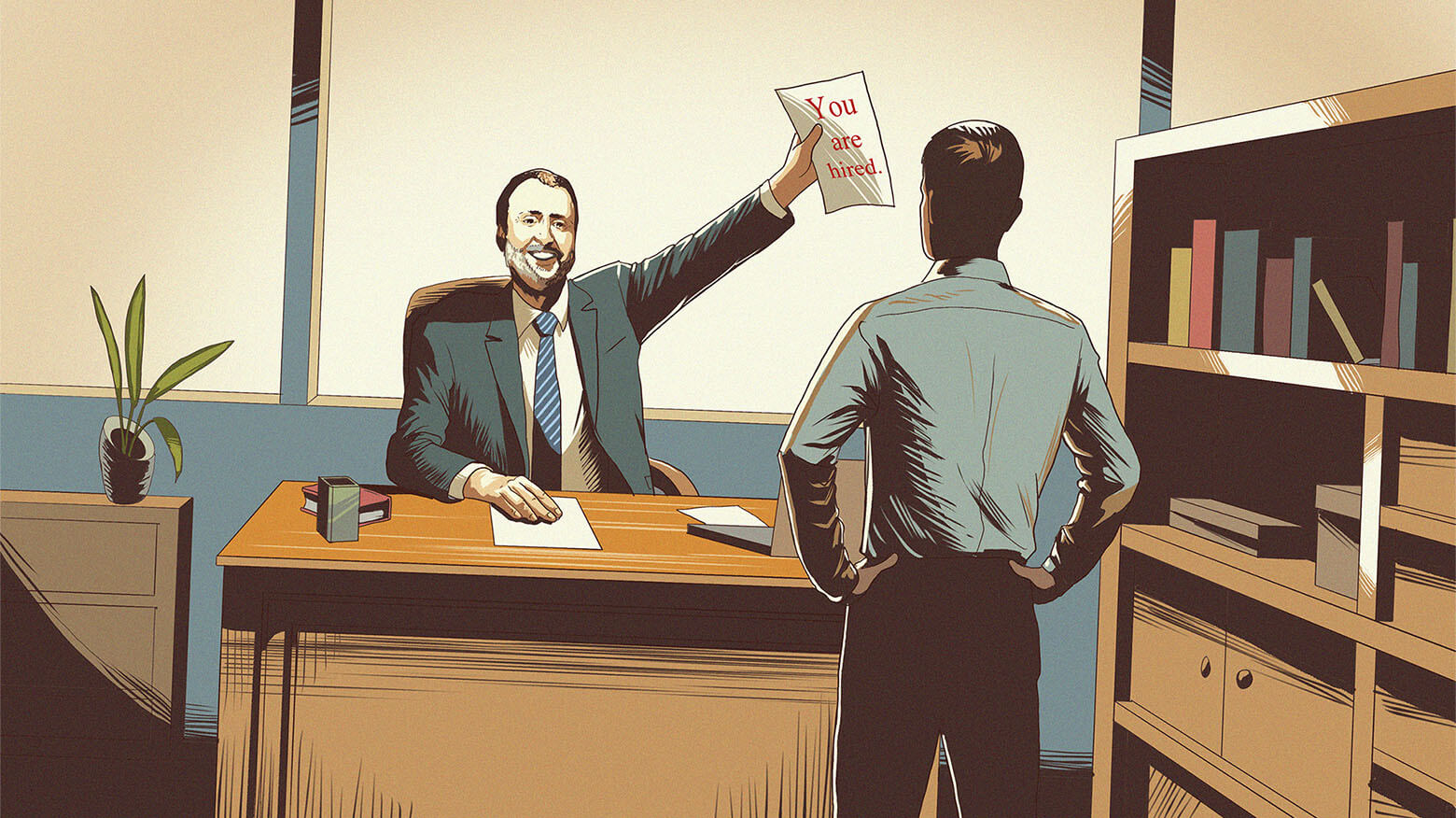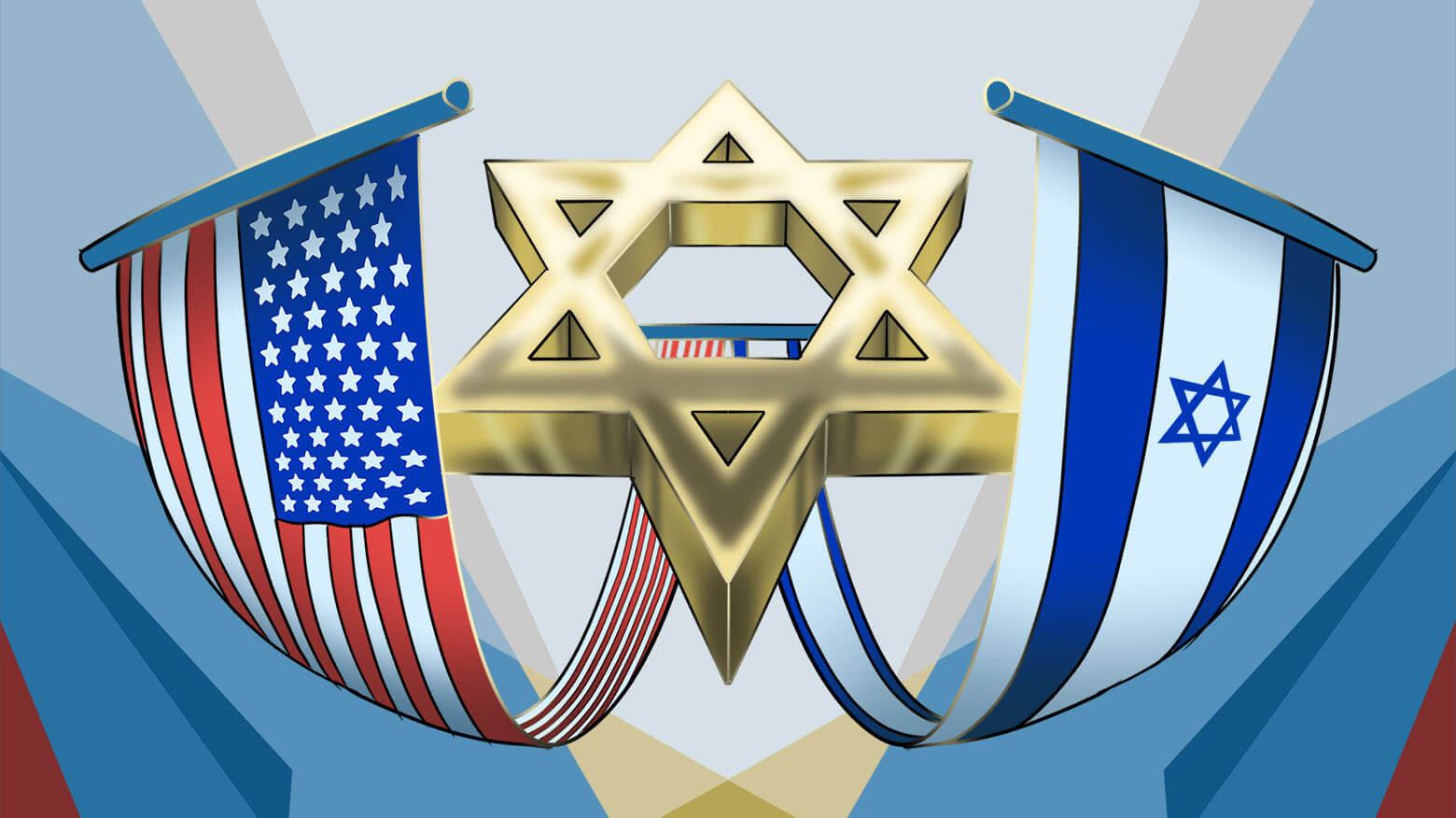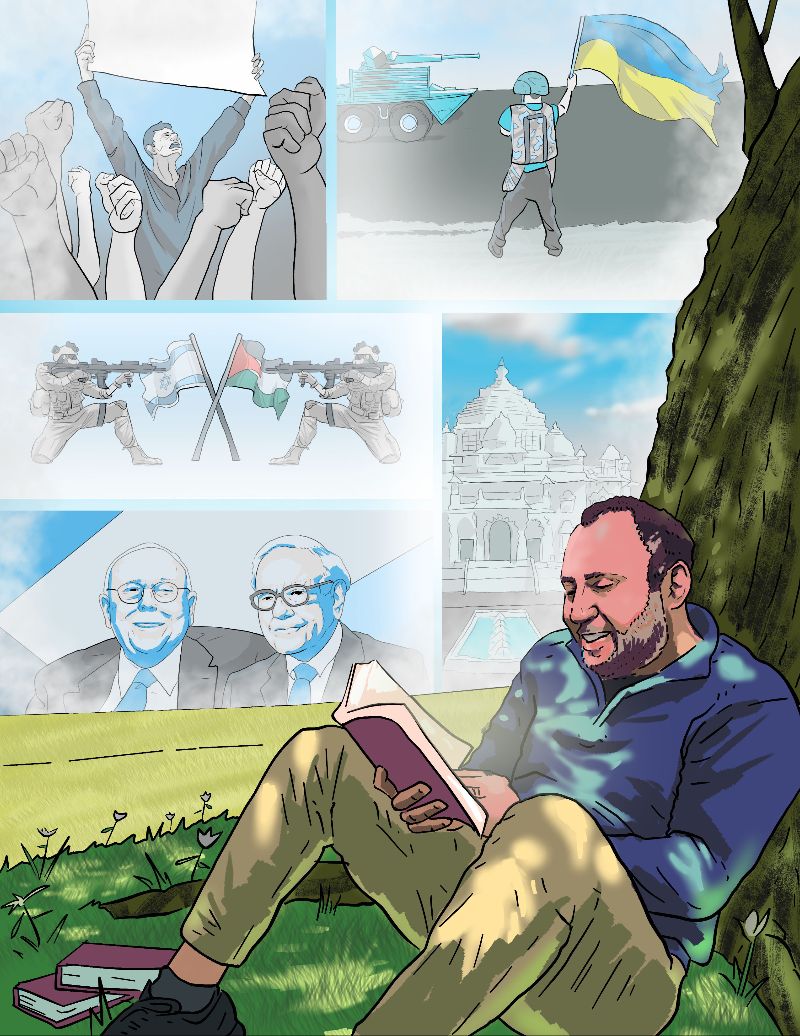The Queen’s Gambit show is one of the best things that has happened to my family. I wrote a long essay on this subject (read it here), so this is a follow-up.
Hannah (15) watched the movie late last year and started playing chess – she even got a chess teacher. Then her seven-year-old sister Mia Sarah saw her playing chess and asked for a chess teacher, too. Their older brother, Jonah (20), saw his two sisters buried in chess and started playing again, too.
This is where things got more interesting.
Jonah is 6’3 and built like an athlete. He is used to being better than Hannah at everything – basketball, golf, skiing. Age and physical strength gave him an advantage in physical sports. But in chess his physical strength is irrelevant – it’s a domain where Hannah can challenge him. What makes things worse is that chess was one of Jonah’s domains – he took chess lessons from a young age and played in tournaments (and even won some). Hannah had played maybe a dozen games before this year.
Even a few months ago, in May, the 6’3 giant would crush his 5’2 little sister consistently, with an enormous, smug smile and colorful joking remarks that told her, you are a tourist in my domain.
But Hannah has been studying chess non-stop. Most importantly, she has been deliberately playing 10–15 games a day. What makes it deliberate? The feedback loop. After every single game, she puts the game through an analyzer, a feature on chess.com that walks her through the efficacy of every move (both hers and her opponent’s). Also, in addition to weekly lessons with her teacher, she watches several hours of chess lessons a day on YouTube and solves chess puzzles on chess.com. I am guesstimating that by now she has played almost as many games Jonah has in his lifetime, except that she has learned more from them because of her deliberateness.
(Deliberate practice is a very important topic that I am just glossing over here. I am going to write about it in greater depth in the future. In the meantime, if you are interested, read James Clear’s post or Anders Ericsson’s book Peak.)
Jonah and Hannah have been playing a lot lately and Jonah’s dominance has dissipated – they are playing at the same level. As a parent I am not supposed to take sides between children. I love them equally. But I’ve been rooting for the underdog.
Jonah has an incredibly kind heart but a sensitive male ego when it comes to losing to his younger sister. In one of my articles, I mistakenly said that Hannah was a better skier than Jonah (she is not). Jonah is still adorably annoyed by it – he throws his hands in the air and with a puzzled look says, “Dad, how could you even think or write this?”
Hannah approaches winning or losing to Jonah as a good Stoic. She is happy when she wins, indifferent when she loses. (Stoics call this positive preference: “I’d rather be rich than poor, but either outcome is fine with me.”)
I think in a few months Hannah will be consistently crushing Jonah in chess. I may start rooting for Jonah soon. Both kids are equally smart. Hannah simply has more time on her hands. Jonah is going to CU Boulder this fall. He’ll be living on his own, taking a full load of classes, and enjoying a busy college social life. And Hannah takes chess a lot more seriously than Jonah.
As I am writing this, I have a big smile on my face. I love seeing this very friendly sibling rivalry. Most importantly, chess is bringing them together. They are playing each other on chess.com even when they are apart.
In a few days, Jonah, Hannah, and I are driving to Santa Fe for what has turned into an annual trip. We are going to walk the galleries on the Canyon Road, go to our favorite Indian restaurant, and of course we’ll take in the Santa Fe Opera. We’ll see Tchaikovsky’s Evgeniy Onegin. We’ve been doing this trip for nine years. It is now a firm Katsenelson family tradition, and next year we’ll take Mia Sarah with us.
Let me make this clear: My kids are not looking forward to the opera (Jonah prefers J. Cole to Tchaikovsky). They do however regard the opera as part of the family tradition. In fact, when I asked Jonah if he’d recommend our outing to anyone else, he said, “No, Santa Fe is something we do. It is our tradition.” This made me think that to him this trip is pretty special, because we’ve gone there since he was a little pup. Despite his indifference to opera, going to the Santa Fe opera is an opportunity to relive happy memories of his childhood while listening to music that he may not necessarily enjoy (yet).
Hannah and I went to Santa Fe in October of 2020 without Jonah (he was in Hawaii). On the way there we listened to Andy Weir’s book The Martian. It is a well-written, funny, educational, captivating read (or listen). I wrote about this book and our trip; you can read it here. This year on the car ride we are going to listen to Weir’s Project Hail Mary. And of course, we’ll be debating which music to listen to in the car (that’s part of any long car ride we take together), and Jonah and Hannah will be playing chess non-stop. I cannot wait.










0 comments